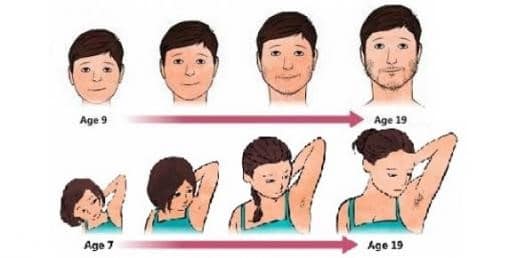Teenage complaints about Parents is one of the problems faced in every family. The transition of Child & Parent’s role in Adolescence is one of the important aspects to be considered. The parent teenage conflict should be aware of the adolescence period. conflict resolution for kids or teenagers, teenage resolution activities are the most important aspects we should know. Let explore more about it.

what is adolescence?
The period of human growth that occurs between child and adulthood is known as adolescence. Adolescence begins at age around 10 and ends around age 24 (neither all children start adolescence at the same age nor ends in the same age). It is a time for growth spurts and puberty changes.
A different phase of adolescence and changes during this period. In adolescence, your body experiences physical as well as mental changes and this change develop slowly as an increase in your age. The adolescent phase is divided into (early adolescence, middle adolescence, and late adolescence).
How does the change start?
The changes which occur in the body during adolescence are caused by the hormones which are produced as chemicals in your body. When your body reaches a certain age, your brain releases a special hormone that starts the changes of puberty. It’s known as a gonadotropin-releasing hormone, in short GnRH.When it reaches the pituitary gland, this gland produces two puberty hormones: luteinizing hormone (LH) and follicle-stimulating hormone (FSH) after it releases to the bloodstream. Both boys and girls have these hormones in their bodies and depending on whether you are a boy or a girl, these hormones go to work on different parts of the body.
What are the different stages of adolescence?
There are three stages of adolescence characterized by age. They are mentioned below also with changes seen in each stage.

Phase 1: Early Adolescence (ages 10 to 13)
Physical change:
- During this stage, children often start to grow more quickly. They begin to notice their other changes, including hair growth under arms and near genitals, enlargement of testes in male and breast enlargement in females and may experience menarche in the late phase of early adolescence (sometime it may start early).
Mental changes:
- children become curious and question about their changes, they may be confused and shy at the same time about their physical appearance. Early adolescence may feel invincible and start to engage in risky behaviors such as smoking and alcohol use. Sexual curiosity is increased which is usually expressed through admiration of celebrities, crush, and musicians. They start giving priority to their friends over parents they may explore ways of being independent of family. In this process, they may push boundaries.
Phase 2: Middle Adolescence (age 14-16)
Physical change:
- Most boys will have started their growth spurt and puberty related changes continue. They may have voice cracking. Girls experience regular menstruation, the voice becomes melodious and puberty changes continue.
Mental change:
- At this age, many teens become interested in romantic relationships and may question and explore their sexual identity, also they explore their sexuality by self-stimulation or masturbation. They are more concerned about their appearance. Their struggle for independence continue, which may results in more argument with parents and they spend more time with friends. The teenage complaints about Parents most of the time and most bears teenage problems in school too. They take part in decision making and think they are always right and feel superior.
Phase 3: Late Adolescence (18 -21 and beyond)
Physical changes:
- Late adolescents generally have completed physical development and grown to their full adult height.
Mental health:
- In this phase, teens become worried about studies and future and found to be stable in friendship and romantic relationships. Many reestablish or fix the relationship with their parents, considering them more or equal from whom to ask advice and discuss mature topics. At this stage, the Teenage complaints about Parents are less and they become less arguing.
Parents: how to help children during adolescence
There will be dramatic changes in the relationship between parents and children during adolescence but parents are still critical support throughout this time. Whenever teenage complaints about parents, we need to think that the child should be taken seriously and need regular counseling. Moreover, the parents should be a watchdog to them indirectly by supporting them. Ther can be lots of teenage problems with parents. Parents have to support their children by performing teenage conflict activities. Some of to be considered are as follows:-
- Start early communications about important topics. An open conversation about sex, sexually transmitted infections, safe relationships, healthy relationships, starting these conversations will help to build up a good way for the future.
- Learn about puberty and explain to them about physical changes and emerging sexuality is the part of normal development. Allow children to ask questions at their own pace and do not hesitate to answer them.
- Honor independence and individuality. keep conversations with your child positive. Point out strength and celebrate success. Always remind your child you are there to help when needed.
- Be supportive and set clear limits with reasonable expectations. Communicate clear about school management, media use, and behavior. Make them feel free to share their problem at the same time, gradually expanding more opportunities for more independence over time as your children take on responsibility.
- Discuss risky behaviors (such as substance abuse in adolescent articles and sexual activity and their consequence). If you found abuse on drugs you should know how to deal with teenagers and drugs. Be sure to set a positive example yourself. This can help teens think before making a decision and act gently when situations arise.
Also, Read Following :
- Amazing benefits of Vitamin C foods and drinks
- Safe Scoliosis Management and Treatment Approach
- Female monthlies and Purity : Mensuration and Ovulation
- Constipation and How to Get Rid of it ?
What To Do If You Can’t Resolve?
Sometimes teen and parent problems become so big you can’t handle them by yourself then Teenage complaints about Parents should be dealt with in different ways. Few suggestions are put hereafter.
- Talk and take your child to your pediatrician. There might be mental, emotional, or behavioral issues going on with your child. A pediatrician can sort out the right direction by his/her own methods.
- You can seek for professional child therapist to resolve the issue. These professionals can help you and your child to overcome the communication gap in between.
- You may involve in some child or teenage support groups or parent groups. Their discussion and experience can help lots.
So, Teenage complaints about Parents during adolescence are crucial things every parent and family should take into mind. We should be aware that if we couldn’t’ cope with this page of life with children then there can be a disaster with children in future life.
author :bandana dhakal
